Val Waldron
Library Blogs
Showing 11 - 20 of 27 items
Results
for Date: April 2020

Looking for a video game-related class to take in the coming semesters? This post includes classes that are listed at present. For more information regarding our available services during this time, please see our blog post called CVGA Services During the COVID-19 Lockdown. This will likely be our modus operandi throughout the Spring and Summer. Our physical collection may be inaccessible at present, but we encourage you to visit the Online Games page on our research guide for ideas on how to play classic games online for free, how to play board games online with your friends, and more.
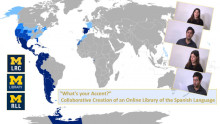
My project, titled “‘What’s Your Accent?’ Collaborative Creation of an Online Library of the Spanish Language,” consists of the development of an online library of the Spanish language that can be used as a resource for students, and for professors and lecturers who teach both Spanish and Linguistics. The project is an effort to bring together a representative sample of the Spanish speakers in the university and Ann Arbor area, as well as the work of different units of the University of Michigan campus, such as the Language Resource Center or the UM Library.

Our project focused on assessing the needs of rural students at the University of Michigan, Ann Arbor campus. As two Master of Social Work students hailing from Bloomingdale (Laura) and Dowagiac (Ana), two rural towns in Southwest Michigan, we felt very connected to this project from the beginning. We distributed a Qualtrics survey titled “Rural Students Needs Assessment” to help us identify the challenges and needs of rural students at the U-M. The survey was also used as a reference to determine if people would be willing to participate in focus groups and share their experiences on campus as a rural student. The responses on the survey were then utilized as a guide to create the questions and themes introduced during the focus groups that we wanted to explore further. Our first goal was to identify the challenges and needs of this population and to identify some solutions to better assist these students. Once we obtained these findings, we sought to offer recommendations to the University of Michigan, certain departments within the institution who expressed interest in this group of students, such as the College of Literature, Science, and Arts, and with the CEW+, who had previously identified rural students as a nontraditional student identity at the Ann Arbor campus. The ultimate goal was to raise awareness about the challenges that rural students experience and to provide recommendations that could help address the current gaps.
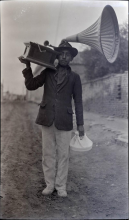
This article reviews how 9,000+ frames of photographic negatives from the Harry A. Franck collection are being digitally preserved.
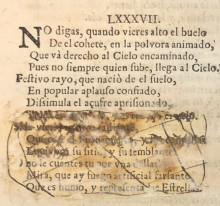
When examining a selection of rare books that had been requested for a class presentation about the impact of censorship in early modern Spain, I noticed something truly remarkable in one of these books. Our copy of the eighteenth-century edition of Francisco de Quevedo y Villegas’ El Parnaso español y musas castellanas, published in Barcelona in 1703, had been manually, and massively, expurgated by a representative of the Spanish Inquisition, Joseph Pinell, as he himself stated on the title page: Expurgavi ex Commisione S(anc)ti Officii die 8 Aprilii/ Joseph Pinell, Supr(emus). Missionum (I, Joseph Pinell, the highest of delegates, have expurgated it by a mandate of the Holy Inquisition on April 8 1760).
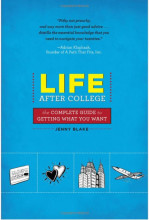
For our graduating seniors who are about to enter the real world, we know it can be a little scary. We’ve put together a list of some books for you to read that can provide some helpful advice. All of the listed books are accessible online!
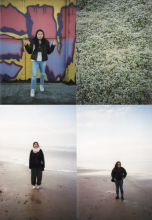
Sweat, tears, or the sea is a photo-series that comments on the physical space of Asian Americans. I want to capture the tenderness, beauty, and portraits of the children of immigrants to create an identity of what it means for them to know that their family has chosen the path of “sweat, tears, or the sea” in America. I used a collection of 4 images per photo for the individual to be able to know that there is a commonality amongst each of the photos together and that we are all intertwined in the emotions and stories we carry as Asian Americans.
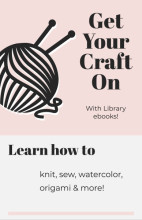
Got some free time on your hands and looking for something to do indoors while you adhere to social distancing? Why not learn a new craft! Over the next few weeks, I'll be highlighting titles from the library's Online Recreational Reading guide, focusing on different genres and subjects each post. Today, I’m going to highlight art, crafting, and DIY ebooks in the library’s collection.
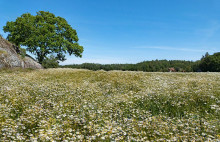
The Digital Public Library of America (DPLA) has collected and made searchable a vast quantity of metadata from digital collections all across the country. The Michigan Service Hub works with cultural heritage institutions throughout the state to collect their metadata, transform those metadata to be compatible with the DPLA’s online library, and send the transformed metadata to the DPLA, using the Combine aggregator software, which is being developed here at the U of M Library.
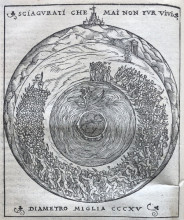
We are pleased to report about our recent acquisition of the first edition of Alessandro Vellutello’s influential commentary on Dante Alighieri’s Divine Comedy, which was published by Francesco Marcolini da Forlì in Venice in 1544. Undeniably, this edition marked a significant shift in the history of the iconography and reception of Dante’s poem, departing from the previous allegorical interpretations by Cristoforo Landino and Girolamo Benivieni, and challenging Antonio Manetti’s reconstruction of the topography of Hell as described by Dante.